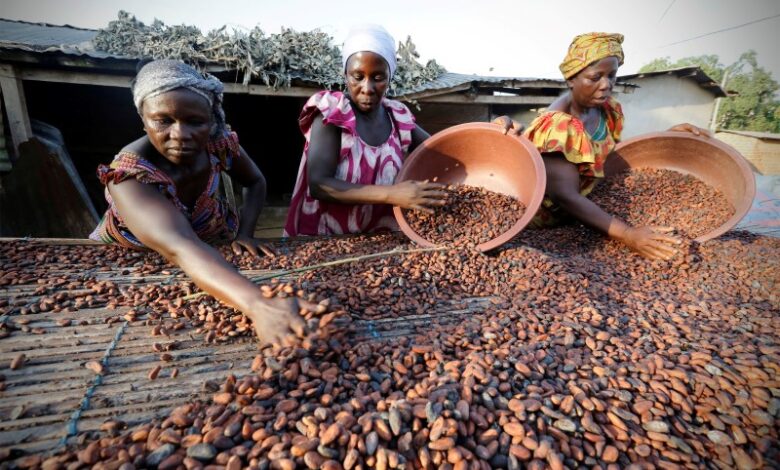Nigeria Meets EU Over Regulations as Cocoa Export Hits N1.2trn

Nigeria’s cocoa exports rose from about N171 billion in the last quarter of 2023 to N1.2 trillion in the last quarter of 2024, representing a 606 per cent increase.
Senior Special Assistant to the President on Agribusiness and Productivity Enhancement, Dr Kingsley Uzoma, stated this at the Nigeria-EU cocoa roundtable meeting on European Union Deforestation Regulation (EUDR) Compliance yesterday in Abuja.
Dr Uzoma said the “remarkable growth reflects not only global demand but the resilience and potential of Nigeria’s agricultural sector,” adding that “cocoa is no longer just a commodity; it is a strategic lever in our economic transformation.”
The Senior Special Assistant added that the current figures positioned cocoa as a vital contributor, accounting for roughly 29 per cent of our total agricultural exports and 5.6 per cent of non-oil exports overall, noting that the federal government is committed to agricultural sustainability, value addition and global trade standards.
The EU Deforestation Regulation (EUDR), which forbids the import of cocoa and other products associated with deforestation beyond December 2020, was the main topic of the roundtable discussion.
EUDR demands traceability, due diligence, and evidence of supply chains free from deforestation.
In Nigeria, more than 300,000 smallholder farmers produce around 80 per cent of the nation’s output, which accounts for about 6 per cent of the world market.
Dr Uzoma stated that in the 2023/2024 season, Africa produced 151 million metric tons of cocoa, with Nigeria accounting for 320,000 tonnes and aiming to increase production to 500,000 tons by 2025 through targeted interventions.
“The EUDR aligns with Nigeria’s green economy agenda, advancing our goals to combat climate change, preserve biodiversity, and build resilient agricultural systems.
“It also drives innovation in traceability technologies such as blockchain and satellite mapping, while enabling stronger farmer support programmes that promote sustainable practices and higher yields without encroaching on forests,” he said.
Nigeria is considered one of the world’s leading producers of cocoa, but new international regulations, such as the EU Deforestation Regulation, are altering the production, tracing, and trading of cocoa and five other commodities.
The country has set up a Technical Working Group to coordinate national efforts for EUDR compliance and a National Task Force on EUDR compliance.





